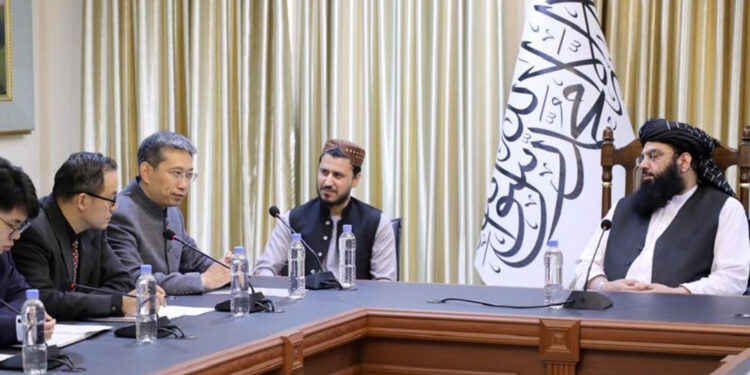The Chinese envoy to Afghanistan said on Thursday that his country will offer the government in Kabul access to its vast construction, energy and consumer sectors without customs duties, at a time when resource-rich and diplomatically isolated Afghanistan is looking to open markets abroad.
Beijing has been seeking to develop relations with the government of Afghanistan since the Taliban took control of Afghanistan in 2021, but like all countries, it has refrained from officially recognizing the movement’s rule, but the poor country may offer a wealth of mineral resources that enhances the security of China’s supply chain.
Selling Afghanistan’s lithium, copper and iron deposits to feed China’s massive battery and construction industries would help Afghanistan support its economy and provide a much-needed revenue stream as the Afghan central bank’s overseas reserves are frozen.
“China will provide Afghanistan with 100% tariff-free treatment,” Chinese Ambassador to Afghanistan Zhao Xing wrote late last night on his official X account. The caption included a picture of him meeting with Abdul Kabir, Acting Deputy Prime Minister of Afghanistan.
According to Chinese customs data, Afghanistan exported goods worth $64 million to China last year, nearly 90% of which was pine.
But Afghanistan’s Taliban-run government said it was determined to find foreign investors willing to help it diversify its economy and tap its mineral wealth.
The country did not export any goods to China last year, the data show, but Zhao has regularly posted photos of himself meeting with Afghan officials in the mining, petroleum, trade and regional connectivity sectors since his appointment last September.
Earlier, the Acting Afghan Minister of Commerce told Reuters that his country wants to officially join the leading infrastructure initiative “Belt and Road” launched by the Chinese President.
Kabul has also asked China to allow it to be part of the China-Pakistan Economic Corridor, a $62 billion project linking China’s resource-rich Xinjiang region to Pakistan’s Gwadar port on the Arabian Sea.



